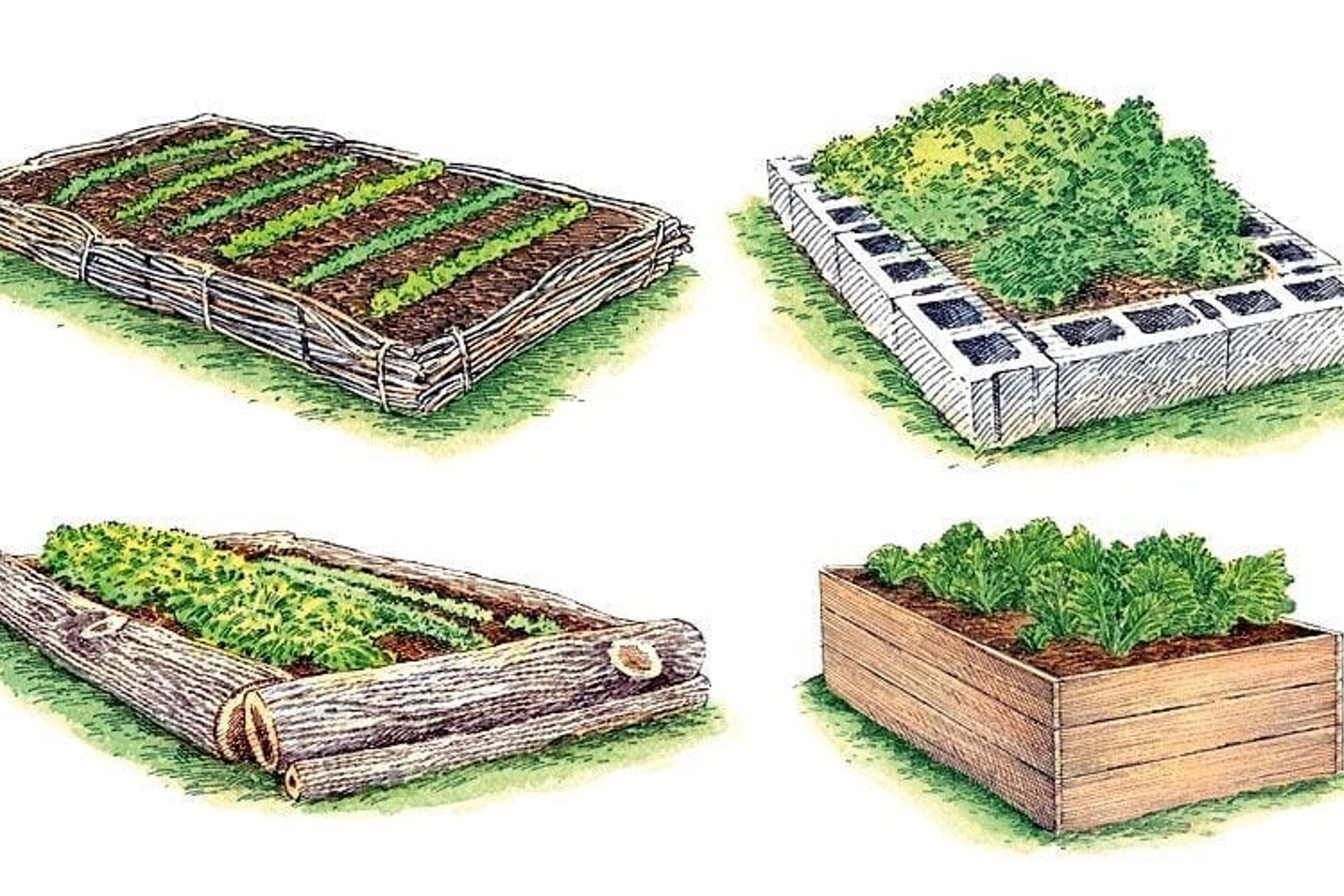Weekend Series – Build a Simple Raised Garden Bed
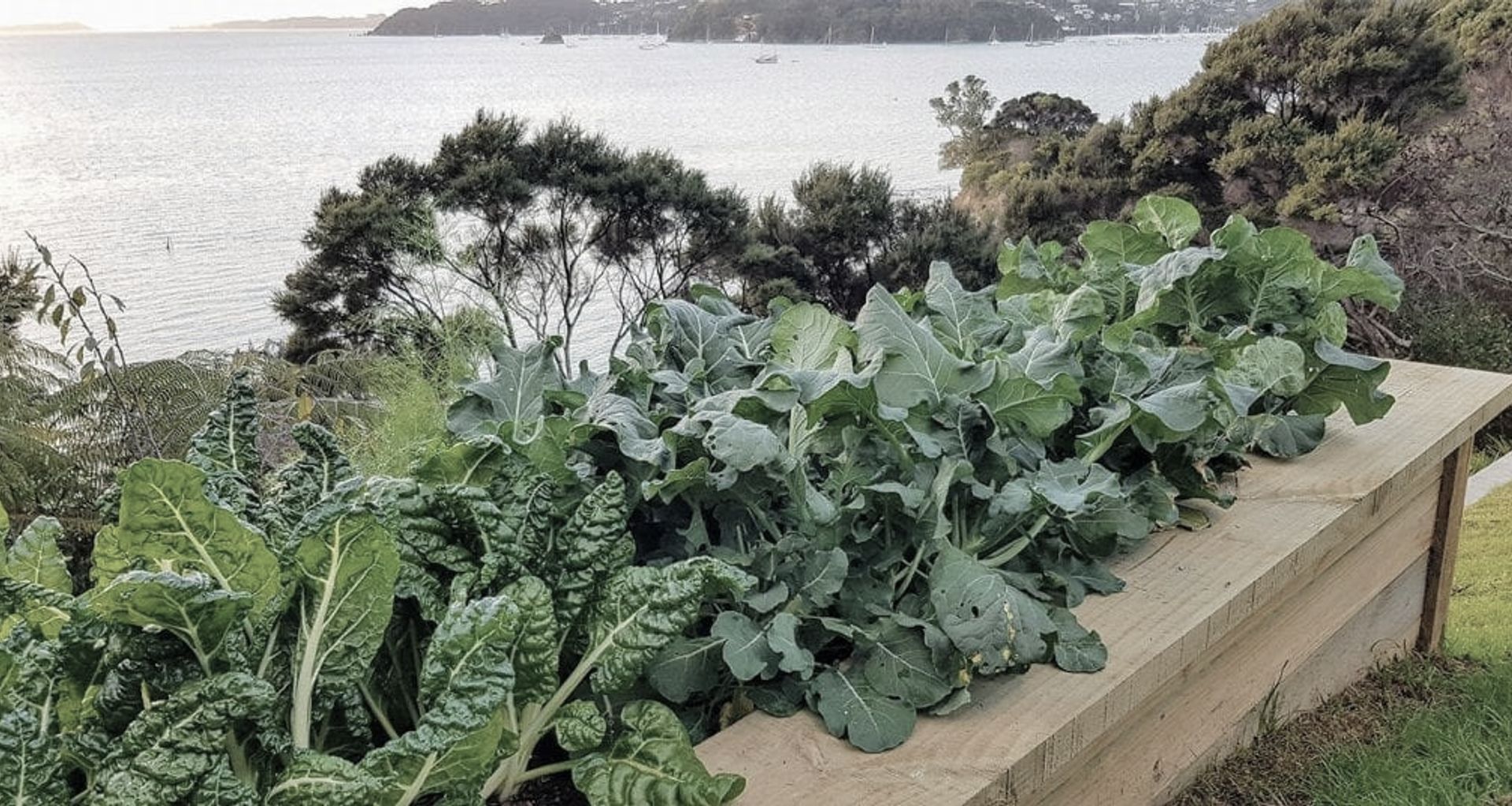
There are a whole lot of reasons to build raised vegetable gardens — the kind that sits above ground within a frame made of wood or other material. If your land has sandy, claylike, or hard-packed soil (or if you don’t know and don’t give a hoot about the difference), you can provide perfect conditions for whatever you’re keen on growing.
Plants are lifted out of the way of rowdy pets and little ones, and your soil warms up earlier and stays that way longer, extending the growing season and providing gentler conditions for new seeds and delicate transplants. Fruits, veggies, and ornamentals will send their roots deeper in search of water, which means a stronger foundation and improved health. And raised beds keep your space tidy. Best of all, they couldn’t be easier to make. Especially if you’re getting into growing for the first time, you’re going to want some beds of your own.
The beauty of this particular raised bed build is that it is cheap and easy to build. The wood and rebar will cost you no more than $50 if you’re using untreated pine planks, and the entire build can be completed in less than an hour’s time. The untreated pine might only last 3 to 5 years, but due to the nature of this build, each board is easily replaceable without taking apart the entire bed. For a 2.4m x 1.2m raised bed, you’ll need:
2x 300×50 planks, each 2.4m long
2x 300×50 planks, each 1.2m long
12 pieces of rebar, each 600mm long
A rubber mallet
Newspaper or cardboard
Soil to fill the finished frame
- Position your boards.
On a level section of ground, lay the boards down with their inner corners touching. Stand one long board on its side, and, using a rubber mallet, hammer two pieces of rebar 300mm from each corner, a few inches deep into the ground.
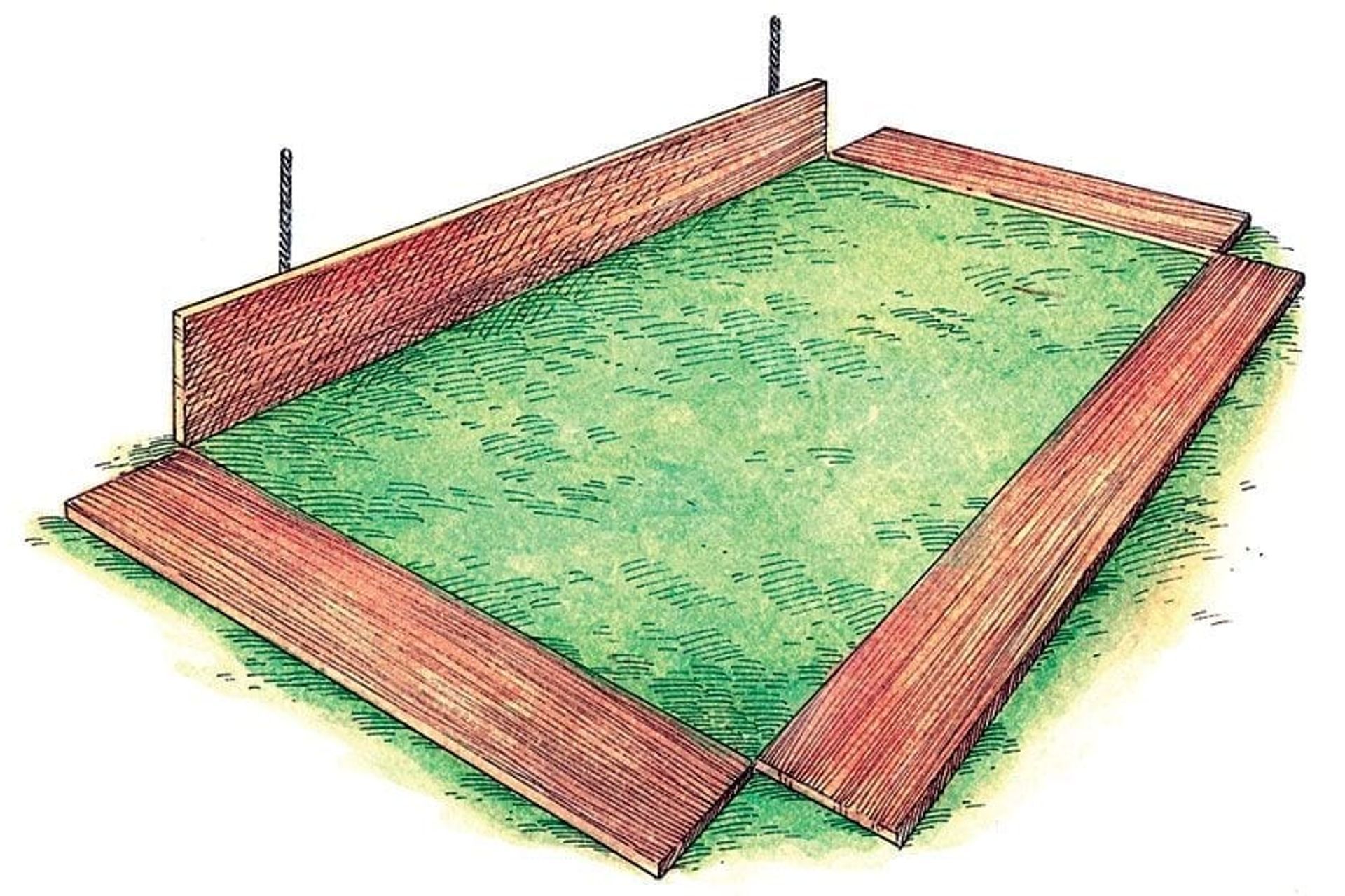
- Prop up the short sides.
Use a piece of rebar at the centre of each for temporary support. Next, prop up the second long side and adjust the alignment of your frame as necessary. Then hammer rebar a 100mm deep, 300mm from each corner of the second long side.
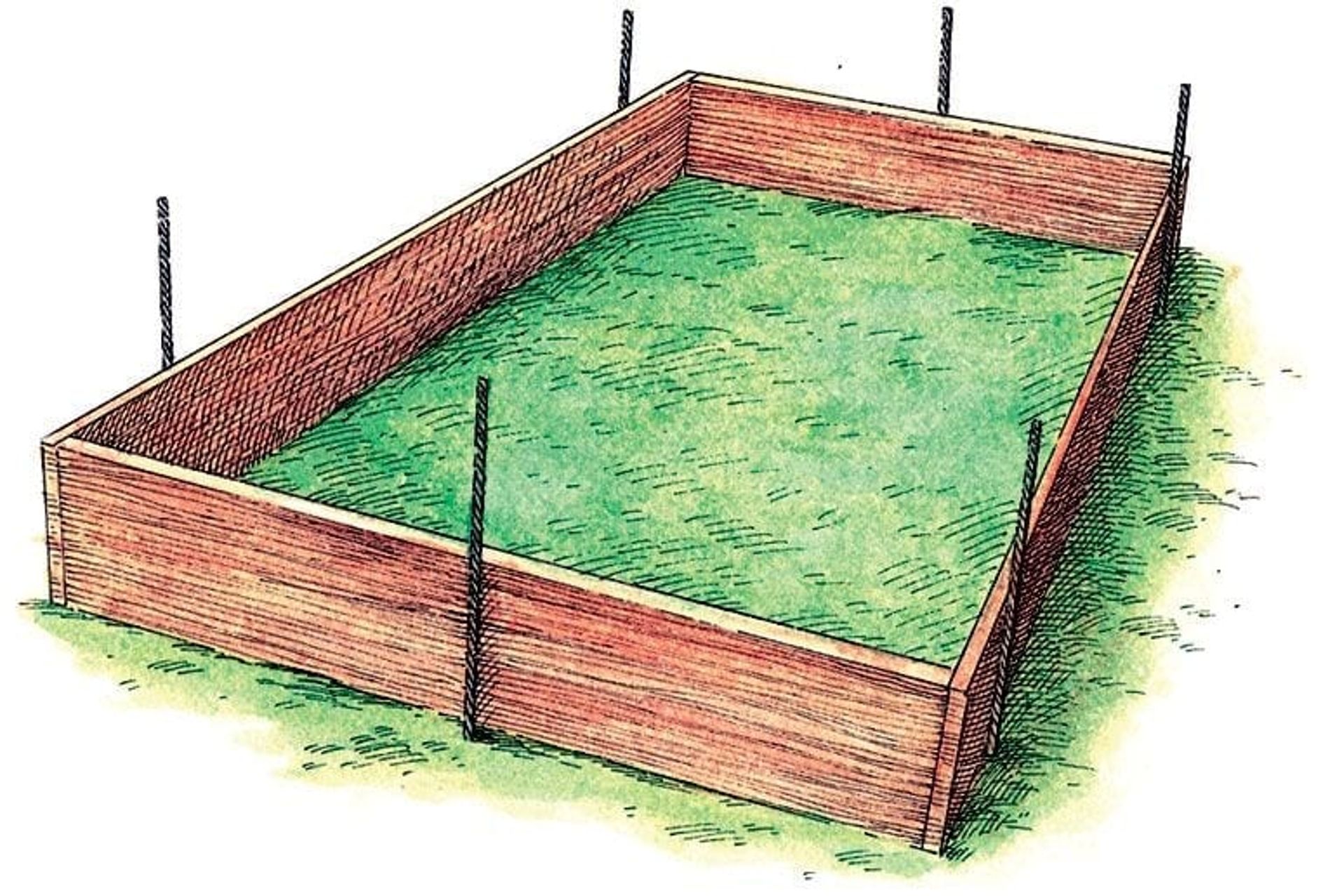
- Add more support.
Hammer rebar a few inches deep a foot from each corner of the short sides and remove the temporary supports. Add two pieces of rebar 600mm apart along each long side. These will reinforce the frame when it’s filled with soil. Then hammer in the rebar until 200mm are exposed above ground.
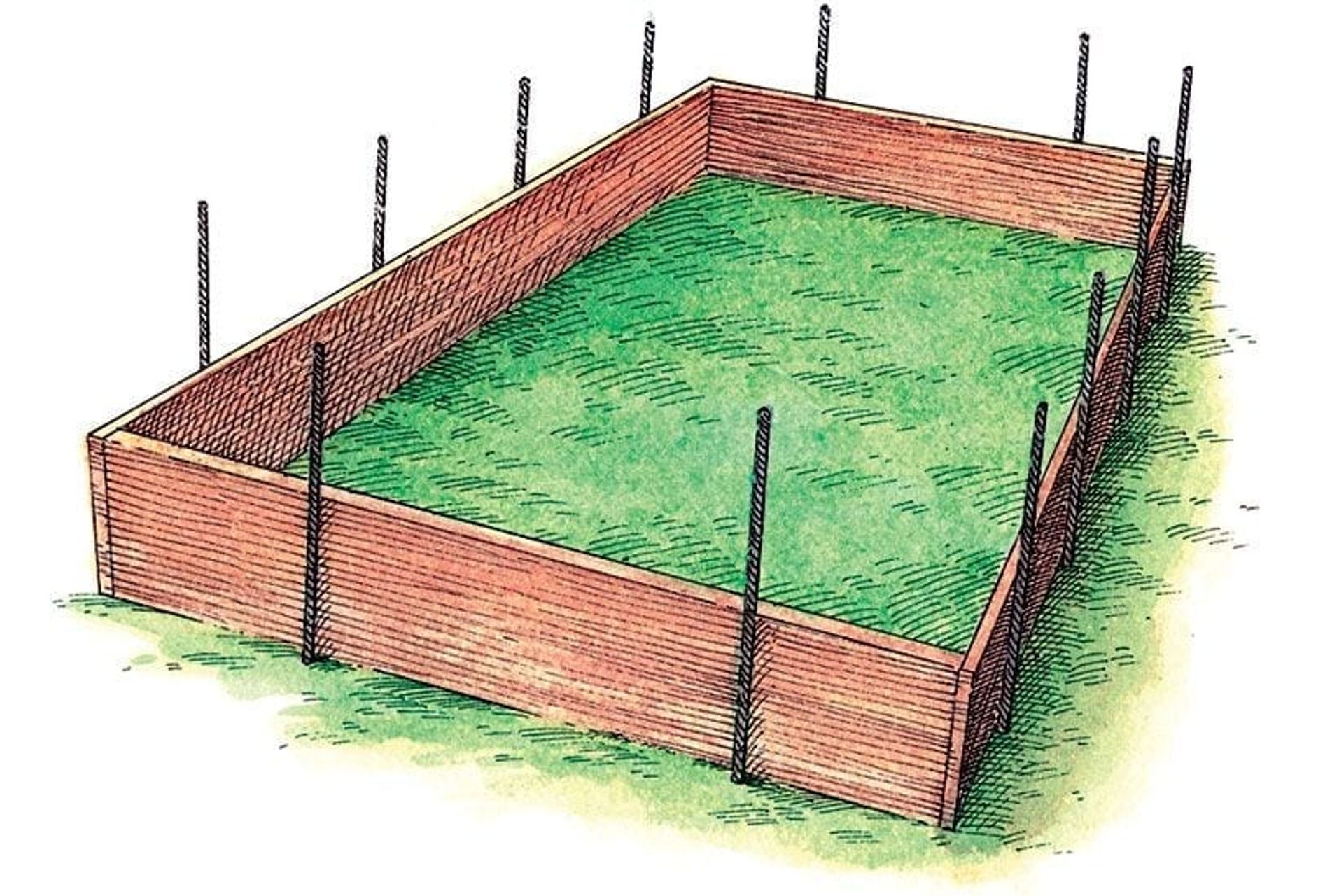
- Fill it up.
Line the bottom of your frame with newspaper or cardboard and wet it thoroughly. Finally, fill your bed with soil to within a few inches of the top.
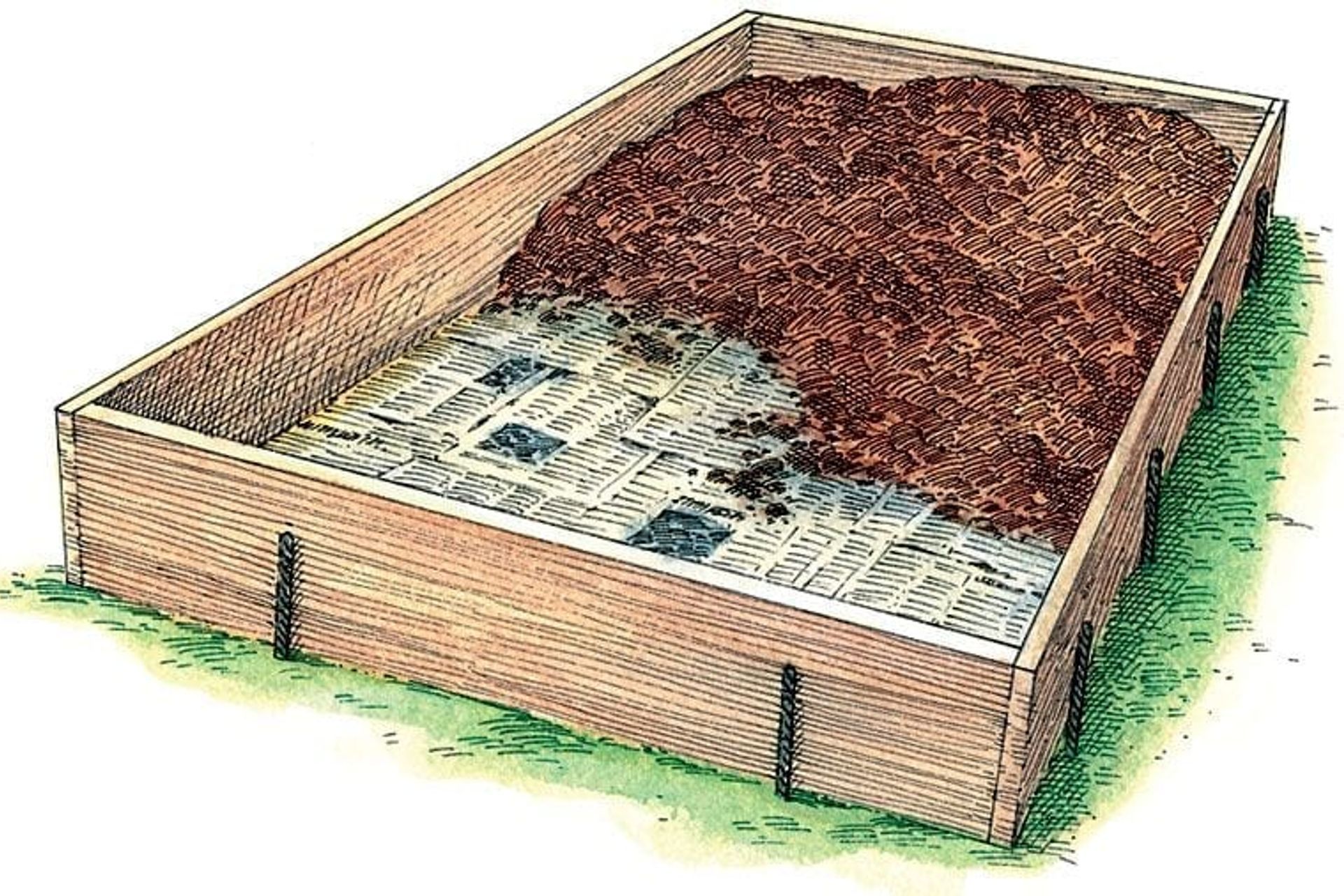
Alternatives
